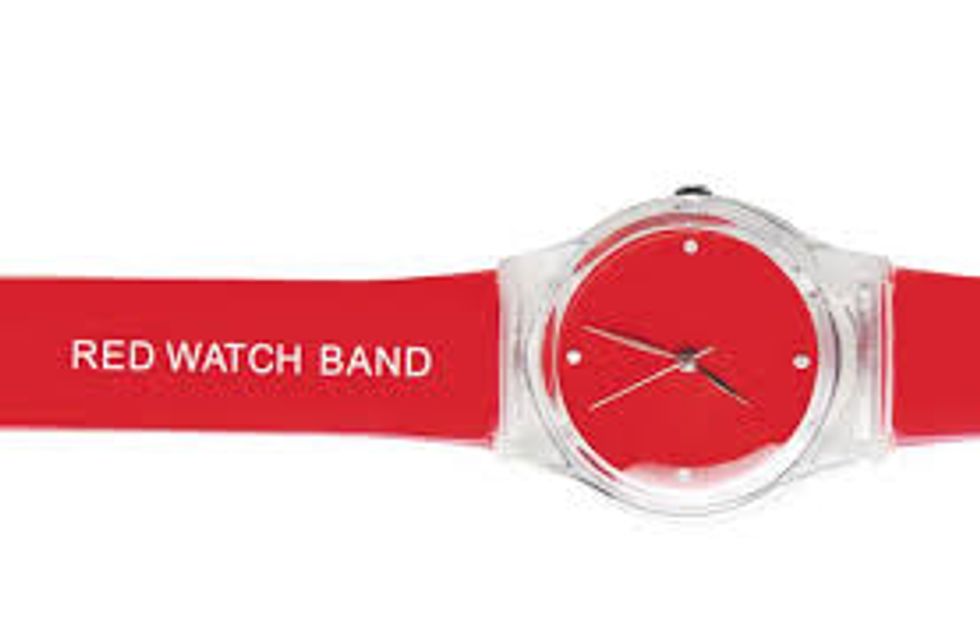We’ve all heard the same infuriating stories before: college students drinking and having a blast one minute, and the next minute there’s a cold, dead body on a couch among red solo cups that reek of alcohol and indifference. The indifference of the avid party-goers who have inadvertently failed to realize that an emergency is unfolding right before their very eyes. What’s disheartening is that every year, around 2,000 college students lose their lives to alcohol poisoning.
Red Watch Band is designed to bring alcohol overdose deaths to an end by educating students on how to handle situations during which a peer falls victim to alcohol poisoning. My college adopted this movement and offers free training for students. I attended the training and learned some interesting things regarding alcohol and related emergency situations.
1. Reaching a fatal state is easier than we think.
Your liver can only process one unit of alcohol per hour. One unit is equivalent to one serving of whatever you’re having, so if your consumption is too rapid, the excess alcohol enters your blood. Too much alcohol in the blood can shut down the central nervous system. Some people think that alcohol is a pick-me-up; that beverage you turn to when you want to feel good and have a good time, but alcohol is actually a depressant.
You might feel great when your Blood Alcohol Content (BAC) is between 0.06 and 0.08, but any drinks after that and brain function will slow down. Signs of decreased brain function include altered speech, impaired vision and delayed reaction time, to name a few. Sounds scarier when we’re talking about the control center of your body, doesn’t it?
2. Bread doesn’t do what we think it does.
Have you ever been told to give someone bread if they’ve had way too much to drink? To be honest, I didn’t hear about this until my training, but this idea raises an interesting point. Many think that by giving an intoxicated person bread, the alcohol will be absorbed and they’ll be alright. Wrong. It’s the alcohol that made its way into the blood that has a deadly effect. No food item can absorb alcohol that’s in the blood. The same holds true when people think that sticking their fingers down someone’s throat to induce vomiting is the best way to go. If a person is able to consume a beverage or food, the only thing you should be trying to give them is water.
3. What does death by alcohol look like?
It looks like you’re sleeping! This is a huge point of concern. You might think that lugging your friend to a couch or bed so they can “sleep it off” is a brilliant idea, however, your friend might be slowly dying from alcohol poisoning and you wouldn’t even know! Don’t just let anybody “sleep it off.” Seek professional medical attention and try to stay with them until they can get the help they need. Try to keep the person awake and sitting upright in case they end up vomiting. This will prevent them from choking.
4. New York has a Good Samaritan Law.
Sometimes, people are afraid to aid during a situation because they think there might be repercussions to their actions. The Good Samaritan Law ensures that those who step in on another’s behalf will not get into any form of trouble. If trouble is what inhibits you from intervening to ensure another human being’s safety, the Good Samaritan Law basically says you have nothing to worry about. This persuades people to be more comfortable with getting help for those who really need it. There’s nothing wrong with wanting to protect our own interests first, but knowing that you can do that, while saving someone’s life, gives you one less thing to worry about.
5. Sometimes we all fall victim to pluralistic ignorance.
Pluralistic ignorance is a situation where a supposed “norm” is assumed and incorrectly adopted. Our instructor described a study during which a student was asked to sit in a room and take a “cognitive exam” with others. These “other” students were well aware of what the actual experiment was. Soon, smoke started to fill the room and the one student looked to the rest of the group for a reaction. Everyone carried on and didn’t move a muscle toward the door. The student figured that this was normal so he remained sitting and didn’t say or do anything.
If a student is passed out from too much alcohol, peers would be less likely to act if no one else decides to act. They figure that the current situation is normal so they’ll just go with the flow. We know something is happening, but we look to others to take initiative and be the one to call 911, or approach the student to see if he or she is okay. Being the odd one out can save someone’s life!
It's all fun and games until you realize you can't go back in time and do things differently. We can’t stop students from going out and having a good time. We can’t tell them to stop drinking, but we can prevent serious emergency situations from arising by looking out for each other.

















